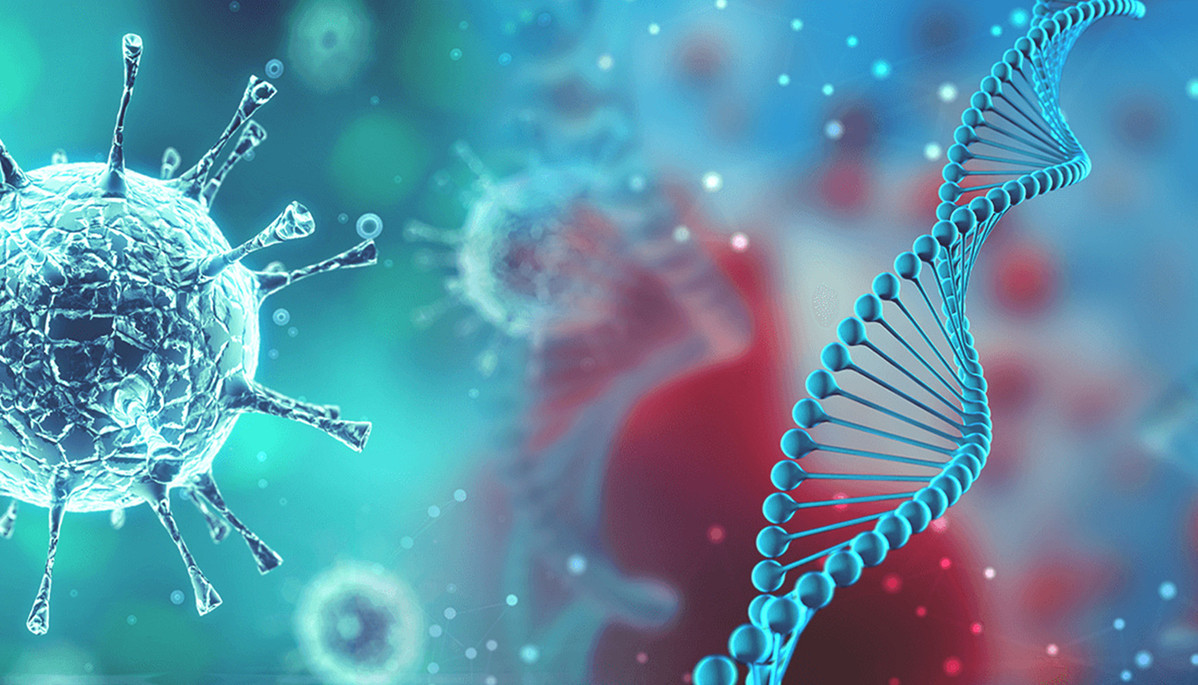WARNING! D614G Mutation Coronavirus Strains From Europe Could Render Those Recovered From Earlier Strains Defenseless According to China
Source: D614G Mutation And COVID-19 Jun 21, 2020 5 years, 7 months, 3 weeks, 6 days, 7 hours, 36 minutes ago
D614G Mutation: According to warnings from Chinese researchers, individuals infected with the earlier SARS-CoV-2 coronavirus strains could be defenseless against the more aggressive European strains with the D614G mutations.
https://www.biorxiv.org/content/10.1101/2020.06.20.161323v1

This would have implications for countries like Japan, South Korea, most of the South-east Asian countries and even China itself as most of the individuals infected in the early parts of the crisis were infected with the milder strains.
The Chinese researchers say that the antibodies found in blood of individuals who have fought disease previously failed to stop D614G strain.
The mutant form was identified in genetic data of samples collected at Xinfadi food market in Beijing where latest outbreak began.
Chinese authorities are saying that previously recovered Covid-19 patients in China may still be vulnerable to a mutant form of the pathogen spreading overseas.
Professor Dr Huang Ailong from Chongqing Medical University said that there is an urgent need to determine what threat the mutation, known as D614G, poses to people who have recovered from a different form of the virus. Also worrisome is that the new strain could actually be more worse the second time round in patients who were previously infected with the milder strains and had recovered but there is no clinical proof of this yet.
The strain with the D614G mutation began spreading in Europe in early February and by May was the dominant strain around the world, presenting in 70 per cent of sequenced samples in Europe and North America. It is now present in India, Iran, Middle-East and Brazil as well.
The Chinese researchers say antibodies found in patients who had been infected with earlier forms of the pathogen failed to neutralize the mutant strain.
Ever since the latest coronavirus outbreak was reported at the Xinfadi wholesale food market in Beijing, 228 new infections have been confirmed and more than 2.2 million residents have been tested for Covid-19 in a bid to contain the spread.
Roughly about 12 per cent of the individuals infected by the new outbreak in Beijing are in a critical condition, according to the Beijing health authorities, and medical teams from across the country have been flown into to help with the aid effort.
The WHO and Chinese government have both said the genetic information of the virus points to a source outside China, but whether it arrived via a refrigerated food chain or a human visitor has yet to be determined.
China’s health authorities identified the infection in a number of locations at the market, including inside the mouths of imported salmon. The whole genome sequencing data of samples from the first three patients have been rel
eased and they all contained the D614G mutation.
Dr Huang and his team selected a strain of the virus that had previously circulated in China and then manipulated it to create a man-made version containing the mutation
The team then extracted antibodies from 41 blood samples collected from recovered patients and pitched them against the mutant. All failed to fight the new strain.
In a report published last week by Scripps Research, a medical research facility in San Diego, the D614G mutation has the potential to increase the number of spike proteins on the coronavirus and boost its ability to infect human cells by a factor of 10.
https://www.thailandmedical.news/news/scripp-institute-has-detected-the-mutation-that-most-scientist-dread:-the-d614g-mutation-which-could-make-the-sars-cov-2-more-infectious
In Dr Huang’s study which also included the antibodies generated by three patients, all failed to suppress the mutated strain, with one sample showing almost zero effect.
The study team then tried to infect host cells with the mutant and normal strains. The mutant’s entry efficiency was 2.4 times higher.
The researchers said, “This seemingly small increase in entry activity could cause a large difference in viral infectivity in the human body.”
Most significantly, one of the concerns now is whether the prevailing D614G strain will have a detrimental impact on vaccine development.
Many Chinese vaccine candidates have entered the final phase of clinical trials, but they are based like those under development in the United States and Europe on the earliest strains of the coronavirus detected and sequenced in Wuhan.
A detailed study by IBM’s AI medical team in April warned that the D614G mutation could reduce the effectiveness of vaccine programs that target the virus’ spike protein. A separate study by a team of researchers in Serbia last month came to a similar conclusion.
file:///C:/Users/Administrator/Downloads/preprints202004.0024.v1%20(2).pdf
Dr Huang said, “Given the evolving nature of the SARS-CoV-2 RNA genome, antibody treatment and vaccine design might require further consideration to accommodate the D614G and other mutations that may affect the immunogenicity of the virus.”
It must be noted that here are also other strains with mutations on them being discovered and studied, with another 2 more that might be even more potent.
For more on the
D614G mutation and other merging mutations of the SARS-CoV-2 cornavirus, keep on logging to Thailand Medical News.
Read Also, Newly Published Studies About How Herbs Like Honeysuckle Can Help With COVID-19 https://www.thailandmedical.news/news/breaking-news-covid-19-herbs-researchers-confirms-that-in-studies-and-clinical-trials-the-herb-honeysuckle-has-efficacy-against-sars-cov-2
HELP! Please help support this website by kindly making a donation to sustain this website and also all in all our initiatives to propel further research: https://www.thailandmedical.news/p/sponsorship
